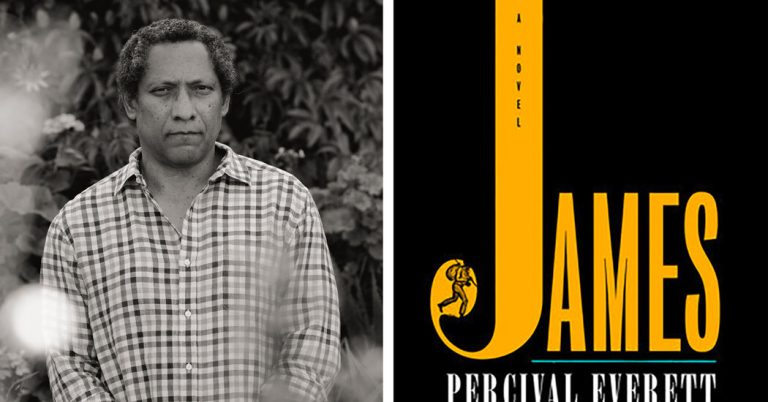The Conversation has been a staple of The Times’s Opinion pages since 2017. But after eight years, the weekly dialogue between the liberal columnist Gail Collins and her conservative colleague Bret Stephens has come to an end. The editor Aaron Retica joins Gail and Bret to answer reader questions and discuss how they’ve managed years of civil conversations — for the first and last time in audio.
Gail Collins and Bret Stephens: A Last Conversation
After eight years of weekly chats, one more for the road.
Below is a transcript of an episode of “The Opinions.” We recommend listening to it in its original form for the full effect. You can do so using the player above or on the NYT Audio App, Apple, Spotify, Amazon Music, YouTube, iHeartRadio or wherever you get your podcasts.
The transcript has been lightly edited for length and clarity.
Aaron Retica: I’m Aaron Retica, an editor at large in the Opinion section of The New York Times.
In this job I work a lot with a number of our columnists and one of the great joys, really delights, of my life here is that I get to work on something we called The Conversation, which is a weekly dialogue between two of our columnists — Gail Collins, who is standing in for liberal America, and Bret Stephens, who is standing in for conservative America.
It has appeared every Monday morning and is a crucial part of the agenda-setting and thought world of the Opinion section.
I’m sorry to say that after eight years together, this particular iteration of The Conversation is coming to an end.
And we didn’t want to just let it drop there, so I’ve brought them together in the studio to reflect a little on the years they’ve been doing this, what the future might hold and really just to give us one last conversation in audio form.
In the last written Conversation, we asked readers to send in their thoughts and questions for Gail and Bret. And you did so by the hundreds. So I’m going to try to incorporate as many of those questions into this episode as I possibly can.
Gail and Bret, welcome. Thank you so much for coming in to do this.
Bret Stephens: Hi there.
Gail Collins: Great to be here. Thanks for having us.
Retica: So for the people who are listening to this who have no idea what The Conversation is, let’s just lay out what it is that you guys do.
Collins: One of us begins with a general topic and we email each other. What you’re reading in the paper is the emails that we have sent back and forth. I’ll say, “Bret, what about this thing Trump did?” Or if I ever get desperate, I always say, “Well, why can’t we have taxes for the wealthy?” and then that will distract him from whatever good points he’s making at that point in time.
It’s a really fun way to have the kind of conversations that I think people miss having these days.
Stephens: For those who’ve never encountered us, it is a conversation in a conversational tone between liberal and a conservative columnists who, despite their political differences, like each other and are prepared to sit down at a metaphorical table.
Retica: With a metaphorical glass of wine.
Stephens: With a metaphorical glass of wine and —
Retica: Sometimes not metaphorical.
Collins: Sometimes not metaphorical, no. [Laughs.]
Stephens: And we shoot the — I guess the breeze, for the better part of an hour. And we’ve done it week in and week out for eight years. We’re just bringing it to a close now because we have books to write.
It’s been kind of amazing that the easiest thing we do has been the most popular thing that we do. [Collins laughs.]
Retica: It’s sobering.
Stephens: I can’t tell you how many times in how many settings someone has approached me and said, “Is Gail Collins as funny in real life as she is on paper?”
A story I told in our last conversation was I was standing on a street corner in L.A., just minding my own business — I think I was waiting for an Uber — and some total stranger comes up to me and he looks at me and says, “You’re Bret Stephens,” in this kind of nice way. And I thought: huh, you know, I’m being recognized.
So I said, “Well, yes I am.” And then he laughed and he said, “Gail Collins is my favorite columnist!” [Collins laughs.]
I had to laugh. I called Gail right away. That was what The Conversation really was about. I think it was not just between us, but it involved so many people from all over the country who, in their way, participated.
Collins: Bret’s the kind of person who would tell you a story like this. That’s why people really love him so much and read him so much.
I have said to him too, that walking around in my neighborhood on the Upper West Side of Manhattan, which is the most liberal Democratic neighborhood in the entire universe, probably, people are always stopping me and saying: “Hi, how’s Bret? How’s that going?” They really love feeling like they’re talking to him.
Stephens: Yeah. But their following question is, “Is he dead yet?”
Collins: [Laughs.] Not exactly. No.
Retica: We have a lot of reader questions that I’m going to turn to, but first we want to demonstrate a little bit about what The Conversation is.
The big story, obviously over the eight years that we’ve been doing this together, has been the transformation of the Republican Party. It is no longer the party, Bret, that you were an enthusiast of, right? It’s almost totally different.
Stephens: Yeah.
Retica: We are all different ages, but we all grew up to some degree with Russia being the enemy and Ronald Reagan talking about the evil empire. Now Russia’s our best friend. That’s just one example of so many.
Stephens: On so many subjects, I think of the Republican Party as Upsidedownistan. [Retica laughs.]
I grew up as a youthful believer in the virtues of free trade. I remember Ronald Reagan, George H.W. Bush, George W. Bush and John McCain talking about the importance of comprehensive immigration reform, international relations, a strong NATO, partnerships around the world, a tilt against the old-school isolationism that defined the Republican Party in the 1930s and early 1940s.
All of that has been upended. I remember my parents’ generation would sometimes say, “We never left the Democratic Party; the Democratic Party left us.” That was a cliché of the time for a lot of Reagan Democrats. I am on the other side of that now. My views are pretty much the same as they were 10 years ago. It’s the Republican Party that’s just marched into a dark place.
Collins: It’s really a challenge trying to have arguments sometimes, because he really does hate Donald Trump possibly more than even I do.
Retica: Can we talk a little bit about the degradation of public discourse that’s taking place? You’re talking about the ideological changes, but there’s also been a sea change in the way people perform politics.
You have people really in fear of mobs being unleashed on them online and also sometimes in real life. How much of that is because of Trump? Is he a symptom or is he a cause?
Collins: I think he’s a symptom.
Retica: What do we have to do to make that change? Because it seems like we’re not going change the rest of it if that doesn’t change.
Collins: You have to get used to the idea that the biggest change in American politics in our history, I always thought, was when people who were living in towns, who only knew they belonged to a party but didn’t know anything else besides their little town things, suddenly started getting newspapers and mail and realizing there’s a national thing out there, and we should pay attention to it — and who the heck is Grover Cleveland? [Laughs.]
That was so transformative. In people’s lifetimes, something that was very local and regional transformed into this national argument. And now it’s happening for a second time, and it’s equally as thunderous.
Stephens: You’re talking about the social media revolution? A media revolution?
Collins: Yeah. Yeah.
Stephens: It’s true. There is no longer a felt need among the political class to talk to people on the other side. The felt need is to talk to the extremists on your own side.
Growing up, I had the sense that politicians at the fringe realized they had to bend to the center in order to gain respectability and broader appeal. Now the politicians at the center are always bending toward the fringe. And I think that’s especially pronounced in the Republican Party, where so many of the senators and governors will tell you privately that some position is a lunatic position, but their public posturing is always for the sake of preventing a primary.
Gail is right. Social media, which brings together these accretions of like-minded angry people has been a huge driver of that. So Trump really was a symptom of this new technology that created this angry, vitriolic and increasingly polarized mood.
Retica: Is there a recourse? How do we get out of that? How do you push back against it?
Collins: It’s not easy and we won’t know in a way, because more media stuff will happen all the time and things will change. But it is interesting to me how wildly enthusiastic people are about the idea that Bret and I can have a conversation and not scream at each other.
Clearly there’s a hunger for that out there.
Stephens: I was always fascinated by the fact that if you looked for The Conversation online, like on social media, it basically had no presence. And yet our numbers in terms of New York Times readership — it’s not a small number — were incredible.
Gail, you and I would marvel like, gosh, this piece just rocketed northward! How is that even possible? And I think it’s because social media’s algorithms are built for outrage. And our algorithm, if that’s what you want to call it, was built for something entirely different. I think there is a silent majority of people who want a really different tone in political conversation. They just don’t know where to find it.
Retica: Or how to do it themselves. Right? So let me turn to the first reader question.
Linda Moussouris, who’s from Cambridge, Mass., asks how did you guys do this? Could you just explain that process and talk a little bit about how you decided on topics.
Stephens: Oh, we should just lie about this. [Laughs.]
Collins: We won’t tell. We’ll never tell.
Stephens: We’ll never tell. No, go ahead Gail.
Collins: Actually it turned out to be very easy. Many people think we actually talk to one another, and then it gets written down, but we do it over the course of a day. Bret is such a genius traveler that he can do all this on airplanes or in kayaks or whatever.
Retica: Especially kayaks.
Stephens: Yes, kayaking was my specialty.
Collins: I can’t do that. I am at home when I’m doing stuff like this. And as the day goes on, I write him a thing, and then he writes a thing back. Because we’ve been doing it for a long time now, we kind of know which things will lead into other things, and we make sure that we’re not being too cranky or too glib.
Stephens: I think it was important that we worked hard to keep it light. One of the analogies I’ve had in my mind as we’ve done this is that it’s like we’re playing tennis, not with the purpose of scoring points, but just keeping the ball in the air. And not being too fussy about trying to win an argument, so at no point were we spending time going to the side and looking up some killer data point to completely refute whatever crazy thing Gail just said.
The idea was to keep the ball in the air. We arrived at this court as friends, and we’re going to leave as friends, and we’re going to do it every week. That was, I think, the frame of mind that was central to the enterprise.
Retica: So that brings us right to the question that Wyatt Franz in Phoenix asked: “When it comes to having a proper discussion with someone who’s coming from a different political perspective, what do you feel the best way to start that conversation is? And to maintain it — to allow for proper discourse without it flying off the rails?”
Gail, why don’t you start.
Collins: We started from different points in the world and my point in most of my career has been trying to take whatever’s going on and talk to people about it in a way that is amusing and funny. And Bret’s has been explaining things in a way that makes sense and it’s important. And he’s the one who most of the time would bring up a serious point, and then I’ll have to go and respond to it in some sane way. It’s a great challenge.
Stephens: You see, Gail is so nice. What she meant to say was: Bret’s usually the one who comes up with an insane point [Collins laughs], and I have to go and find a sane way to approach it.
But to the question from Wyatt in Arizona, I think it’s very important that you not go into a conversation with the idea that you’re going to win. It’s not a competition. It’s an effort to learn how the other side thinks.
People have asked me, is persuasion possible? I have a hard time thinking it is. I think what you can do is make a person — a reasonable person — on the other side of an argument, say: “Hmm, I can see it. I can see what you’re saying.”
That doesn’t mean I need you to agree with me or that I need to kind of assert my intellectual dominance. It just means like, all right, I get it. That doesn’t sound completely stupid. And I’m going to go back and think a little bit about why that’s not entirely right or totally wrong. But the moment it becomes a competition, the moment pride gets involved, you’re doomed to bitterness.
That’s why humor is so important. As Alan Simpson, the great senator for Wyoming, once said, humor is the universal solvent. It really eases conversations, especially when they come to tense moments.
Retica: You mentioned persuasion, and we were asked a lot about that. And by the way, thank you very much to the hundreds and hundreds and hundreds of readers who wrote in.
Collins: Thank you guys. Thank you.
Stephens: Yeah, I mean, we really owe it to them.
Collins: Damn straight.
Retica: So Lauren Brooks from Madison, Wis. — wow, we really are doing the tour of the New York Times-friendly cities.
Stephens: Go, Badgers! [Collins chuckles.]
Retica: Lauren wants to know if doing this ever led you to actually change your position. Not 180-degree change, but like was there something where you came out thinking differently as a result of your conversation?
Stephens: I would say on gun control — it was never something I thought about a great deal, because when I was at The Wall Street Journal, my remit was foreign policy and it was just an issue that I just sort of thought, OK, well there’s so many guns in the country and there’s nothing you can really do about it.
But talking to Gail, there were a whole series of moments during our conversations when we had to take stock of some fresh atrocity —
Retica: Just an amazing slew of these things.
Stephens: — whether it was in Las Vegas or Buffalo or the horrific school killing in Uvalde, Texas. I mean, so many.
Gail definitely swayed me on this. And I think at some point I wrote a column called “Repeal the Second Amendment,” thanks to Gail’s influence.
Collins: Oh, oh.
Stephens: Aw. [Laughs.]
Retica: And promptly led to the repeal of the Second Amendment. Yes. Showing our influence nationwide. [All laugh.]
Retica: One more question about this whole question of political discourse; this one comes from Ruth Wood. She talks about how when she was younger, she had political discourse at the dining table every night, conversation with friends, first kind of mimicking the parents’ opinions, but then finding their own opinions over time.
But then she said, now I fear that political discourse through news organizations and social media just doesn’t exist at all anymore. And the question she asked, I think, is a tough one, which is, “How do you inform a world that doesn’t want to be informed?”
Collins: It depends on what it is. Obviously there are some things that are so important and so critical, you simply have to say, look, this is the way it is and we have to argue. But there’s a lot of stuff in the middle, and it does really help if you can make it seem more friendly. If you can make it seem like something that you’re not going to feel like you’re an idiot because you didn’t agree with it all along.
If you can feel like you’re having fun, I think that the fact that we have fun when we argue with one another is a really big, big important part of whatever we do.
Retica: What do you think about that?
Stephens: I think it is one of the great perils of our democracy that people are losing the habits of a free mind, that they are so rarely exposed to a contrary point of view from a very early age, that they don’t enjoy the idea of mixing it up.
I mean, I had the benefit of coming from a politically boisterous family. We loved to talk about this stuff. And then in high school, we’d love to argue about this stuff. I had a great influence in high school, a history teacher named Elliot Trummel, who may be listening to this in Portland, Ore. Hi, Elliot. He, politically, was way to my left, but boy did he enjoy sparring with this aspiring William F. Buckley in his classroom, and the joy he took in it was a great model for me about the pleasure you can have in argument.
I gave a graduation speech a couple years ago and I said, look, at its best a good argument is like good sex: it’s frictional, it’s mutual and you know, at best, sometimes it’s generative. So have fun with it. It shouldn’t be something you want to avoid. I don’t know how the graduating class took that analogy.
Retica: I don’t know how I feel about it either. [Collins and Retica laugh.]
Stephens: I thought it was pretty good.
Retica: I’m going to have to think that over.
Collins: As does the audience.
Retica: Obviously a huge part of The Conversation for all of us is to try to be funny, or to be funny.
David Epstein, from our very own New York, N.Y. — and I’m glad to end on somebody from here — raised a really interesting point. He said, “Humor is helpful in difficult conversations, but sometimes it detracts from a serious point or becomes an escape route from the conversation itself. So how do you use humor and still stay on point?” And obviously, Gail, I’m going to start with you, because this is your bread and butter.
Collins: Well, yes, I mean, if you’re going to be passionate about something that you truly, truly, truly believe in and that you think is in danger in some way, you have to kind of have one attitude toward the world.
But there’s just a ton of issues out there that are being argued. They’ll go back and forth and that you can get people interested in by making them more attractive. And sometimes if you can be funny, if you can show the silly side of some of this stuff, it’s a big help.
Stephens: Lord knows we live in an age where my view hasn’t carried the day, but I ultimately don’t think that nastiness is a winning political strategy. If someone is listening to this and saying: “What are you talking about? The nastiest guy ever just won the presidency.” [Collins laughs.] But I’d like to think that in the long term, the great politicians are also funny ones.
Reagan used humor to great effect. Churchill was funny. Lincoln was famously funny in his day. Humor wins over not only your friends, but wins over people on the other side. One of my early political memories was, “I will not use my opponent’s youth and inexperience against him,” Reagan’s great quip against Walter Mondale, and he won because even Mondale in that debate burst into a smile. He knows that Reagan’s delivered this zinger and the race was over at that moment.
So I wish we’d have more humor in politics. I couldn’t have a better partner and a model than Gail. Not only in being funny, but also good humor in having a lighthearted spirit, and I think it’s one of the reasons why our column was so popular and enduring across the political aisle.
Retica: So let’s stay there for a second. People like to make fun of civility, even as a goal, right? And on the one hand you can say that that’s ridiculous, but there’s another way of looking at it and lurking in Mr. Epstein’s question, which is to say, OK, look, these are serious, serious matters, right? So if you’re joking about it, you’re not actually taking it seriously.
Obviously what’s happening around us now illustrates that in a pretty profound way. Because right this minute, the Trump administration is not doing particularly well, but they’re still doing a zillion things that are causing a lot of damage on a million different fronts.
So I just want to almost re-ask that question: “What is the purpose of humor in the darkness?” Is it about retaining a certain amount of hope? Is it about picturing a future life? And not just humor, but civility itself — like the maintenance of discourse. That’s an easy question. [Retica laughs.]
Collins: Take it away.
Stephens: Listen, life is one damn thing after another, and we’re going to have to wake up tomorrow to the next outrage from the White House or the next crisis. I don’t think that a posture of perpetual fear and rage serves anyone and most of all, those of us who want a radically different course,
Collins: Yeah, absolutely. When I started out, I covered the state legislature in Connecticut, and you may be surprised to hear that people did not find the stories about the state legislature in Connecticut that exciting.
But then I started making fun of them, just finding little things that were silly and then bringing them out, and it got people kind of going in it, and really got me into the idea that you could get people interested in stuff sometimes by amusing them — but not in an evil, rancorous way. And that’s been the most fun thing I’ve ever done.
Retica: So we often end The Conversation — the print version or the digital version — with a quote from poetry or an obituary that was in the paper.
Collins: Always from Bret.
Retica: Usually coming from Bret. So a lot of the readers sent in quotes that I thought were really great, and I want to end on one of them.
This is Janet Keefer from Pittsboro, N.C., and she says that one of the quotes she lives by is from Lord Byron. And you’ll see why I wanted to mention it in regard to what you just said: “And if I laugh at any mortal thing, ‘tis that I may not weep.”
Stephens: Do you know the great Byron poem? He was in love with a woman named Caroline Lamb, so the poem goes like this: Caroline Lamb, God damn.
Retica: That’s good. [All laugh.]
Stephens: I was actually going to cite a Shakespearean sonnet, but that’s a better way to end it.
Retica: I love the really short ones. OK, thank you both so much for taking the time to talk to me, but more importantly, for taking the time to talk to each other over the last eight years —
Stephens: Hang on, I think this is important for our audience to know — because ours were the names on The Conversation, but none of this would’ve been possible without a brilliant editor —
Collins: This is Aaron’s work.
Stephens: — Aaron Retica, bringing it together. And there was also a team of fact checkers, too numerous to mention, but I’m always mindful of the work that they did to make sure that we didn’t screw up.
Retica: Right. As I always say: all efforts at effortlessness require tremendous effort. [Collins and Retica laugh.] All right, thank you both so much for coming down to talk to me about The Conversation, but really thank you more than that for talking to each other for the last eight years. It’s been really an extraordinary journey that our readers, hundreds of thousands of them, have loved to be a part of.
Stephens: Thank you so much. What a joy this has been.
Collins: This has been so much fun. Thank you.

Credit…Illustration by The New York Times; photograph by shekhardesign/Getty
Thoughts? Email us at theopinions@nytimes.com.
This episode of “The Opinions” was produced by Derek Arthur. It was edited by Alison Bruzek and Kaari Pitkin. Mixing by Pat McCusker. Original music by Isaac Jones, Pat McCusker and Carole Sabouraud. Fact-checking by Mary Marge Locker. Audience strategy by Shannon Busta and Kristina Samulewski. The director of Opinion Audio is Annie-Rose Strasser.
The Times is committed to publishing a diversity of letters to the editor. We’d like to hear what you think about this or any of our articles. Here are some tips. And here’s our email: letters@nytimes.com.
Follow the New York Times Opinion section on Facebook, Instagram, TikTok, Bluesky, WhatsApp and Threads.









